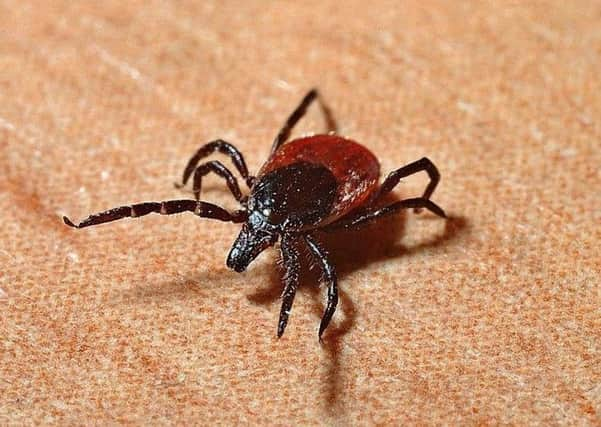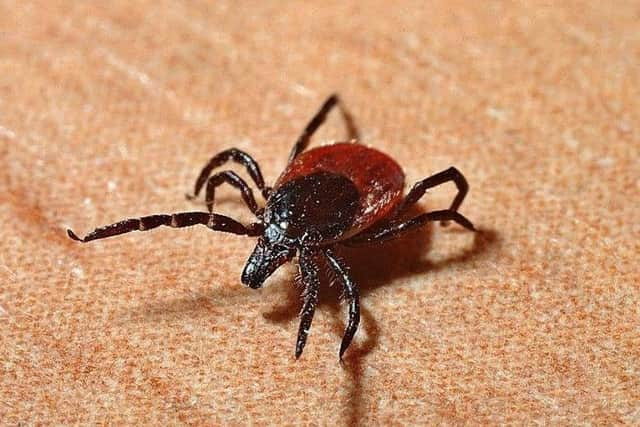Walkers must become ‘tick aware’ over Lyme disease – Dr Nick Summerton


At this time of year, the Hole of Horcum is a beautiful area for walking. But on the tall grass and in the heather, hungry ticks are lurking. They are patiently waiting, ready to grasp onto any passing deer, sheep, dog or human.


The problem with ticks is that some of them carry bacteria – Borrelia. When they bite and feed on our blood, they might transfer Borrelia back to us. From these bacteria, we can get Lyme disease.
Advertisement
Hide AdAdvertisement
Hide AdLyme disease is a serious illness causing a range of health issues including arthritis, heart disease and nerve problems. Over recent years, the number of people reported as getting Lyme disease has rapidly increased. In 2018, an estimated 3,000 people across England and Wales got the condition.
Tick bites usually happen in spring and summer. Although they can be found in gardens, and parks, you are more likely to pick up ticks if you have been walking through woods, tall grass or across heathland. Encounters with infected ticks are most common in southern England, the Lake District, the North York Moors and the Scottish Highlands.


But there are things you can do to help yourself. Use at least a 20 per cent strength DEET-insect repellent and, also, think about covering your arms and legs. My mistake last week was to wear shorts allowing easy access for the ticks to my skin.
Ticks are small – often less than two millimetres – and might hide in your groin, armpits, behind the knees and in the scalp. You may not even notice a bite so have a shower and check your skin carefully after being outside. If you walk with a dog, check them too as they can pass their ticks on to you when you both get back home.
Advertisement
Hide AdAdvertisement
Hide AdIf you find a tick, remove it by gripping the body as close to the skin as possible and quickly pull it off using fine-tipped tweezers. Then wash the bite area carefully with soap and water. Your chances of getting Lyme disease increase if the tick has been stuck to you for a couple of days or if it is full of blood.
When spotted early, Lyme disease can easily be treated with a course of antibiotics.


The problem is that Lyme disease is often hard to diagnose.
Some people get a red circular rash that gradually increases in size.
Advertisement
Hide AdAdvertisement
Hide AdThe rash starts at the site of a tick bite usually after three to 30 days. It is not usually itchy or painful but sometimes develops a clear ring as it gets bigger – looking like a bullseye on a dartboard.
But about a quarter of people do not get any rash and just have a temperature, feel tired or get headaches and swollen glands. Some individuals may get sore eyes, joint swellings, muscle pains or drooping of one side of the face.


The best advice is to become tick aware. If you think that you might have been bitten by a tick – and you have any unexplained symptoms, rashes, or feel unwell – tell your GP as soon as possible.
There are blood tests to check for Lyme disease but, as these are not completely reliable, you often need to be treated with a course of antibiotics while waiting for any results.
Dr Nick Summerton is a Yorkshire GP and author. His latest book ‘Better Value Health Checks’ has been highly commended and shortlisted for the 2019 BMA Medical Book Awards.